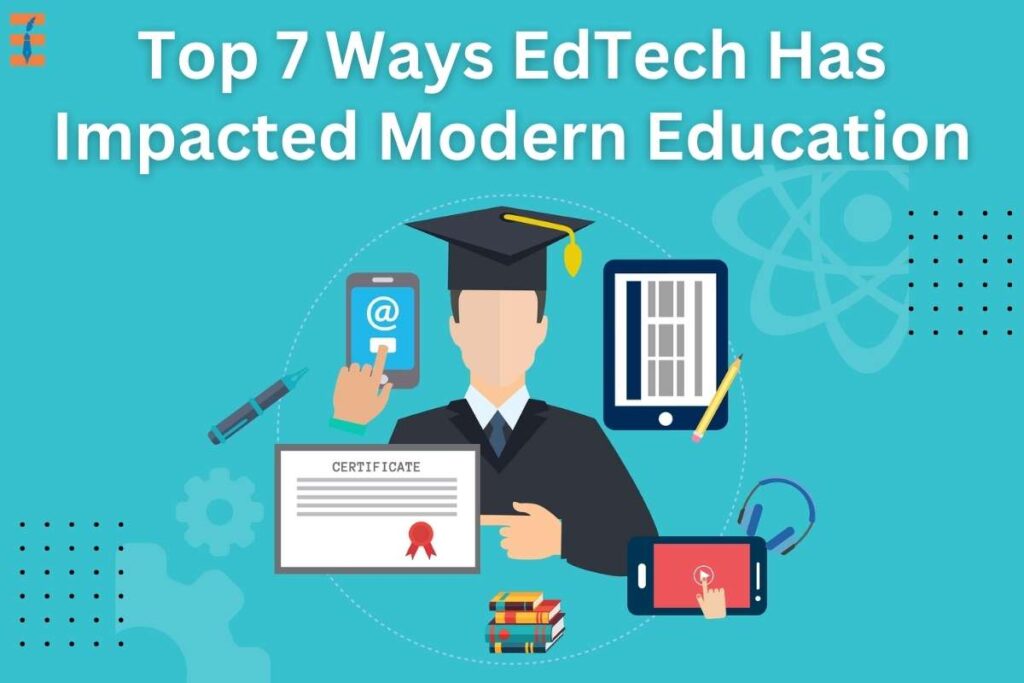It is impossible to deny that Edtech has impacted modern education, as seen by the rise of e-learning, virtual classrooms, and online programs. Around 81 percent of teachers in the United States have acknowledged that their usage of educational technology has significantly advanced in the year 2020 in response to COVID-19. Not only has this revolution made education more accessible, but it has also raised the bar for the quality of education.
The use of educational technology broadens the scope of options and possibilities available to both students and educators. Its features, such as audio, movies, music, PowerPoint presentation, animation infographics, gifs, communication, and inventive ideas are strengthened when using multimedia. Some of these characteristics include:
Artificial intelligence (ai) and augmented reality (ar) are not far-off reality and have entered the education industry to step up the Edtech has impacted modern education. Apps that assist define 3D arts and automated grading systems are two ways that students may progress in areas in which they struggle. However, this might cause pupils to develop a fear of interacting with others. The democratization of educational institutions and the introduction of the idea of freedom both come into play at this point.
Here are the top Top 7 Ways EdTech Has Impacted Modern Education;
1. Online courses taught by some of the best teachers in the world are now accessible.

Edtech has impacted modern education, Students from all over the globe, not only current or former residents of Yale, may now take advantage of the opportunity to study with a Yale professor. Students are allowed to communicate directly with professionals, which raises the overall quality of the educational system. Because there are now more online courses available, students have more options when it comes to picking their future occupations. A person who comes from an engineering household may find that pursuing a career in fashion design is not as impossible as it once seemed.
2. Students get access to individualized evaluations and comments on their performance.
Students can enhance their grades and overall performance with the assistance of personalized evaluation and feedback, which is provided at every stage of the learning process. The grading and evaluation system has achieved new heights of technological improvement thanks to artificial intelligence and augmented reality. As a result, time is saved and the overall quality of each input is improved.
3. Raise the level of communication and involvement to a higher standard
The foundation of the lesson plan has been effectively communicated to the students by using multimedia and other forms of technological progress that enable them to expand their knowledge. Building a solid foundation in a specific area of study is made much simpler when communication is simplified and there is an increase in the amount of contact that occurs between professors and students on both sides.
4. These days, schooling may be had for very little money or perhaps for nothing at all.
The absence of sufficient funding and resources has resulted in widespread illiteracy throughout human history. Students now have easier access to free courses and more opportunities to obtain helpful educational information without having to pay greater fees than in the past because of the digital era.

Students in economically disadvantaged school districts will soon have improved access to the Internet thanks to new government initiatives, giving them more freedom to pick their educational path. This is one of the best ways in this list of 7 ways Edtech has impacted modern education.
5. Ease with which one may become a member of several expert communities
The process of democratizing education is analogous to that of constructing a student government and enabling students to vote for the student government organizations of their choosing. Students may feel more of a part of their passions and interests by joining selected communities of specialists via the use of modern applications and social media groups.
6. Creating more opportunities for people to participate in educational activities

It is now much simpler to take part in a wide range of educational pursuits because of the expansion of options for engagement and the flexibility to make choices. As a result, assisting students in becoming more active, investing their time in their areas of interest, and creating something of value is essential. It is no longer thought of as a distraction for students to participate in the sports and lifestyle industry; rather, it is seen as a way for them to express their creativity and develop successful careers.
7. Improvements in academic drive and performance among students
Students are excited to participate in their favorite activities since there are so many possibilities available, and they feel free to choose their educational route. Because of this, they are inspired to study with a great deal of motivation, which ultimately leads to improved performance. When students are successful in accomplishing their objectives promptly, it gives them a feeling of accomplishment.
Conclusion:
The EdTech field has taken a huge upsurge since COVID 19 and now every school and university is excited to take full advantage of it. As it has become an important part of modern education, you should know how it can impact the whole education sector. We hope you enjoyed reading about 7 ways Edtech has impacted modern education and hopefully, you will implement it.
Also Read: Best EdTech Companies to Work For

